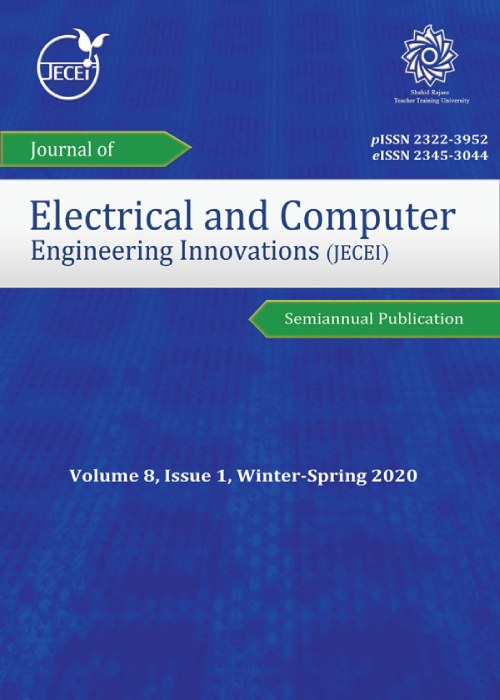Reinforcement Learning-based Load Controller in IP Multimedia Subsystems
Author(s):
Article Type:
Research/Original Article (دارای رتبه معتبر)
Abstract:
Background and Objectives
IP multimedia subsystems (IMS) have been introduced as the Next Generation Network (NGN) platform while considering Session Initiation Protocol (SIP) as the signaling protocol. SIP lacks a proper overload mechanism. Hence, this challenge causes decline in the multimedia QoS. The main propose of overload control mechanism is to keep the network throughput at the same network capacity with overload.Methods
NGN distributed with IMS is a complex innovative network consisting of interacting subsystems. Hence, multi-agent systems (MAS) receiving further attention for solving complex problems can solve the problem of overload in these networks. To this end, each IMS server is considered as an intelligent agent that can learn and negotiate with other agents while maintaining autonomy, thus eliminating the overload by communication and knowledge transfer between the agents. In the present research, using MAS and their properties, the intelligent hop by hop method is provided based on Q-learning and negotiation capability for the first time.Results
In the proposed method, parameters of overload controller are obtained by reinforcement learning. In order to check the validity of controller performance, a comparison is made with the similar method in which the optimal parameters are achieved based on trial and error. The result of the comparison confirms the validity of the proposed method. In order to evaluate the efficiency of the learner method, it is compared with similar and standard methods, for which the results are compared to show performance. The results show, the proposed method has approximately improved the throughput by 13%, the delay by 49% and the number of rejected sessions by 17% compare with methods, passing control messages through the network such as CPU occupancy methods. While compare with external controller methods like holonic, throughput is improved by 1% and the number of rejected requests is decreased by 10%, but delay is increased by 6% due to the convergence time of the learning and negotiation process.Conclusion
To overcome overload, complex IMS servers are considered as learner and negotiator agents. This is a new method to achieve the required parameters without relying on expert knowledge or person as well as, heterogeneous IMS entities can be inserted into the problem to complete study in future.Keywords:
Language:
English
Published:
Journal of Electrical and Computer Engineering Innovations, Volume:11 Issue: 1, Winter-Spring 2023
Pages:
21 to 32
magiran.com/p2506112
دانلود و مطالعه متن این مقاله با یکی از روشهای زیر امکان پذیر است:
اشتراک شخصی
با عضویت و پرداخت آنلاین حق اشتراک یکساله به مبلغ 1,390,000ريال میتوانید 70 عنوان مطلب دانلود کنید!
اشتراک سازمانی
به کتابخانه دانشگاه یا محل کار خود پیشنهاد کنید تا اشتراک سازمانی این پایگاه را برای دسترسی نامحدود همه کاربران به متن مطالب تهیه نمایند!
توجه!
- حق عضویت دریافتی صرف حمایت از نشریات عضو و نگهداری، تکمیل و توسعه مگیران میشود.
- پرداخت حق اشتراک و دانلود مقالات اجازه بازنشر آن در سایر رسانههای چاپی و دیجیتال را به کاربر نمیدهد.
In order to view content subscription is required
Personal subscription
Subscribe magiran.com for 70 € euros via PayPal and download 70 articles during a year.
Organization subscription
Please contact us to subscribe your university or library for unlimited access!


